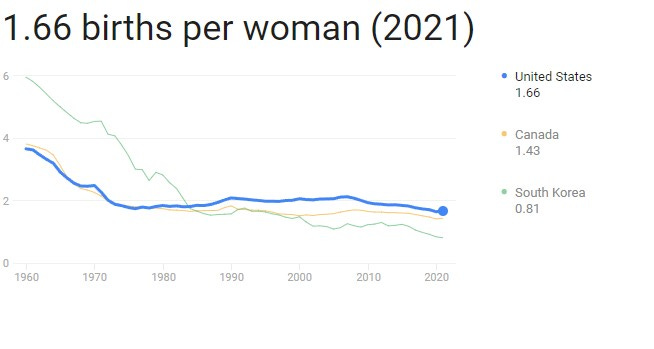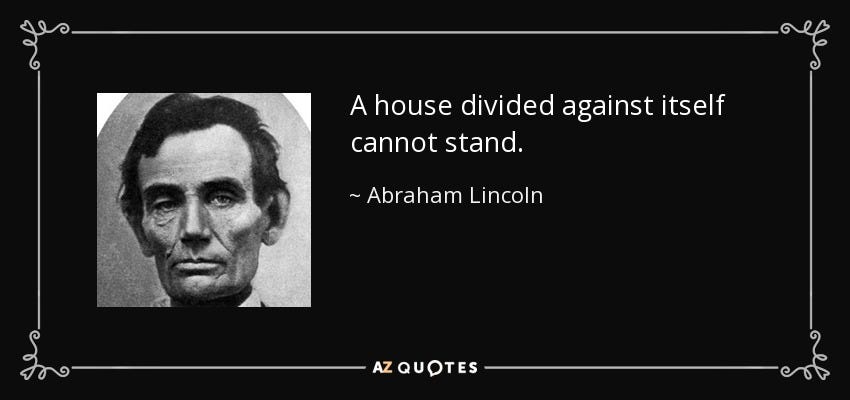The 10 Most Critical Questions About Our Country No One Seems to be Asking
One of the things I have long believed about people, governments and countries is that when they face big, important questions they need to solve without easy answers, they tend to become obsessed with debating trivia, distracting themselves and arguing about nonsense rather than addressing the real, very difficult ways to solve problems.
With that in mind, I thought it made sense to actually take a little time to discuss those big, ugly problems our country needs to address instead of ignoring them. I wish I could tell you that I had the answers to all these problems, but I don’t. Yet and still, it’s good for people to understand that while we’re on year 10 of debating whether you can change your sex just because you feel like it that day, there are real problems out there that need to be seriously addressed for our country to flourish again.
1) Are we ever going to put a sane immigration policy in place? Over time, politicians in America have deliberately set up a system that is designed to make the border uncontrollable. We don’t have a wall, we understaff the border patrol, we allow people to cross the border of countless other countries just to enter our country illegally, claim asylum, and be released into the interior of our nation while they wait for a court date that’s years away.
This is a very easily fixable problem, but we have to want to fix it and most of the people in charge are deliberately subverting the fix. Of course, legal immigration is almost as big of a problem.
Roughly 52% of LEGAL IMMIGRANTS use some form of welfare. Obviously, that should be zero or at least really close to it. Why do we allow immigrants to collect any form of welfare? Why do we not have a merit-based system? If immigrants to our country added to the tax base, obeyed our laws and were picked because they were the best of the best available, it’s highly likely immigration wouldn’t be controversial at all.
So, why are so many on the Left hellbent on bringing welfare cases, dead weight, or people from dysfunctional countries here? Immigration can and has destroyed many nations over time and there’s every reason to think we’ll be one of them unless we change directions, so why aren’t we?
2) How much longer are we going to have the world’s best military?: It’s very easy to be complacent because we do still have the best military on earth, but pretty clearly the world is catching up with us.
Even though we won battle after battle after battle, America lost wars in Vietnam and Afghanistan. We can no longer stop China from invading Taiwan with conventional forces. We’re having recruiting problems. Our military is becoming increasingly interested in woke politics and less interested in doing its job. There are very realistic questions about whether we’re buying the right equipment, have our forces organized the right way, and are anywhere near ready for the next advances in military warfare which are highly likely to involve AI and drones. Have you seen what China is doing with drones? Do you think they can’t use them even better in combat?
We can’t afford anything except complete military dominance because America can’t mass produce new equipment the same way we did in WW2. One major surprise loss could cripple our forces for a decade. Despite all the money we put into it and the prestige behind it, our military seems to be on the way down. Can that trend be stopped?
3) Why are the cost of homes rising so much compared to the cost of median incomes?
This is generally NOT what we would expect to see in a capitalist economy. Is it a case where not enough homes are being built? If so, is that because of government regulations, people not being willing to buy smaller starter homes, or some other reason?
On the other hand, is it a case where corporations/people are buying up residential homes as investments and keeping them off the market? Realistically, how do we incentivize more home building without some gigantic new government program?
4) Are we going to check out-of-control corporate power?: Strong concentrations of power, whether they’re in government, corporations, or other places, are a threat to a free people. We have seen this in social media, which has been (very effectively in many cases) doing the bidding of the government to shut down free speech.
Similarly, monopolies like Google have so much power that they decide a lot of political races. Who voted to give Sundar Pichai (the CEO of Alphabet, the parent company of Google) that kind of power? You? Me? No.
Companies like BlackRock and Vanguard have been able to accumulate so much money that they have been able to dictate the behavior of many companies with their ESG policies. Big pharma has accumulated so much money that they’ve corrupted the whole medical system, universities, the FDA, and a great deal of scientific research. The obsession over global warming would not exist without corporations pouring truly massive amounts of money into it in hopes of making even more.
It’s good for companies to make money, but when companies become so overly powerful that they’re harming tens of millions of people to make their bottom line look better or even just to push their personal agendas, they need to be taken down a peg or two for the sake of the American people. Is that going to happen or are we going to increasingly allow these overly powerful corporations to gain more and more power at the expense of regular Americans?
5) Can marriage be saved? Marriage has long been called the “building block of society,” but it’s collapsing in America. The average age people get married has moved from the early twenties to the late twenties. Furthermore, fewer people are bothering at all:
When you consider that by just about every statistical measure imaginable, kids do better in a two-parent family than being raised by a single parent, this is no small matter. So, why are people marrying less? How do we get more people to marry? How do we reduce the divorce rate and make it less devastating for the people involved?
6) Why is the birth rate below the replacement level? Contrary to what people used to think, what we’re seeing across the world today is DECLINING POPULATIONS, not INCREASING POPULATIONS:
This IS NOT a uniquely American problem and is not unsolvable as long as we’re a hot destination for immigrants (we are currently) AND have a good immigration policy (not even close). However, a declining population means a declining economy, depopulated areas, and a lessening of strength.
If it gets too steep, you end up with old populations ready for retirement and a much smaller number of workers to take care of them and keep the economy functioning. So, what is causing this? Can it be reversed? If so, how? How do we make it more appealing for people to have children?
7) Can we survive this level of tribalism and polarization long-term?: Abe Lincoln once famously said:
Ultimately, America needs a lot of shared cultural values to survive. A country that’s half capitalist/half socialist, half law and order/half lawlessness, half religious/half atheist, half free speech/half censorship, half “I love my country” and half “let’s tear it all down and build something different out of the ashes,” isn’t going to succeed or probably even hold together long-term.
For a long time, our culture revolved around some basic things like Christianity, conservativism, capitalism, patriotism, independence, and self-reliance. If those values aren’t going to unite us anymore, then what will? When?
8) Why does America have one of the fattest populations in the world? Is it just the sheer number of unhealthy food options? Is it the chemicals we allow in our food that are illegal in other places? How do we fix this?
If the solution is Ozempic/Tirzepatide, etc., does the cure turn out to be worse than the disease long-term like it was with amphetamines and Fen-Phen? This is obviously one of the biggest factors driving a number of problems including our insane healthcare costs, so it would pay big dividends to solve it.
9) Do we ever intend to pay off our debt? If it’s “no,” our country is destined to lose our reserve currency status, is economically doomed, and is headed for a Great Depression 2.0. The only question is “When?” If the answer is “yes,” how are we going to do that? And when?
How do we even get back to not running a deficit? If it’s via taxes, we will destroy the country. If it’s via cutting spending, what are we cutting given that the biggest expenditures are Social Security, Medicare, Defense, and interest on the debt? How long do we have before this whole question becomes immaterial because our debt is growing so fast and the willingness to lend us money is shrinking so fast that hyperinflation that destroys dollars and the economy is a given?
10) Can we fix America morally? John Adams was not wrong when he said this:
Immoral Americans engage in crime and corruption and are unpatriotic, degenerate, and fundamentally untrustworthy. There are more Americans like that today than ever before in our history.
Is there a way to get them back on the right track? Is there a realistic way to even get their children back on the right track?
That begs another question; how does a society keep its people moral? Religion is the best way, but that’s in decline in America and there are, at least at this moment, few signs of a major religious resurgence. Barring that, a sense of, “we’re all in this together, and being selfish is morally unacceptable” collectivism of the sort you see in some Asian countries can help.
However, that doesn’t fit well here because Americans are so hyper-individualistic. Beyond that, the sort of truly draconian punishments for even small infractions that you see in places like Singapore could theoretically work as well but given the number of Americans on the Left who oppose punishment for even serious crimes, it’s hard to see that happening either.
Ultimately, the moral character of America as a whole is not good enough to allow us to maintain our superpower status long-term, so how do we become better people?








not sure anyone cares but re the Lincoln quote in the article, Lincoln was quoting someone else...from his King James Bible: Matthew 12:25, "And Jesus knew their thoughts, and said unto them, Every kingdom divided against itself is brought to desolation; and 𝗲𝘃𝗲𝗿𝘆 city or 𝗵𝗼𝘂𝘀𝗲 𝗱𝗶𝘃𝗶𝗱𝗲𝗱 𝗮𝗴𝗮𝗶𝗻𝘀𝘁 𝗶𝘁𝘀𝗲𝗹𝗳 𝘀𝗵𝗮𝗹𝗹 𝗻𝗼𝘁 𝘀𝘁𝗮𝗻𝗱"
In reference to question #8:
Americans are in a historically unusual, and perhaps even unique position of being able to eat anything at any time, anywhere. I'm convinced this isn't a good thing on-balance. The amount of sugar and starch we've been consuming has spiked over roughly the last 100 years, while our metabolisms are still in pastoral mode.
The trick to reversing this problem would be to accept that everything we've learned about nutrition throughout most of our lifetimes from the USDA has been an abject lie, foisted upon us by the agricultural-industrial complex. Then, we must start exercising a level of discipline that most Americans are unfamiliar with, let-alone capable of.